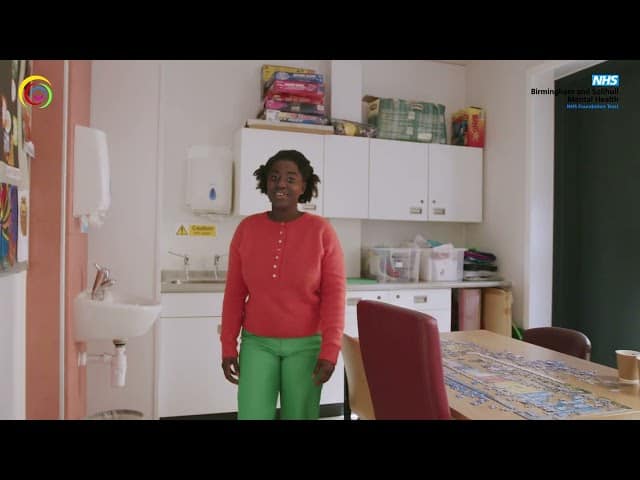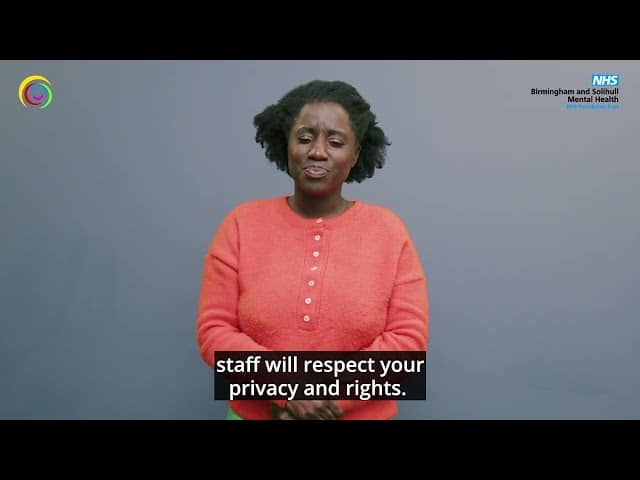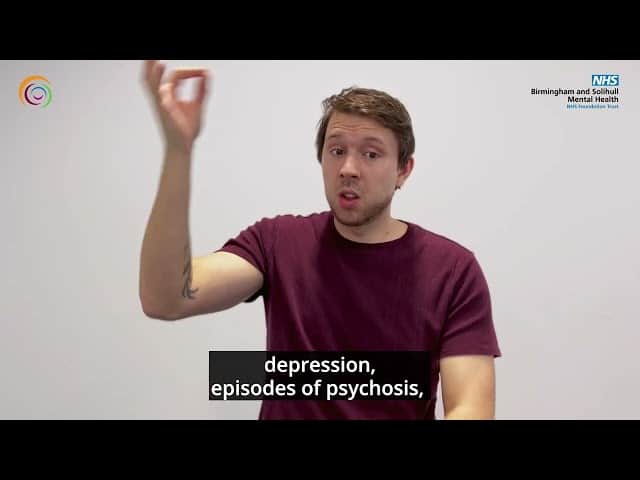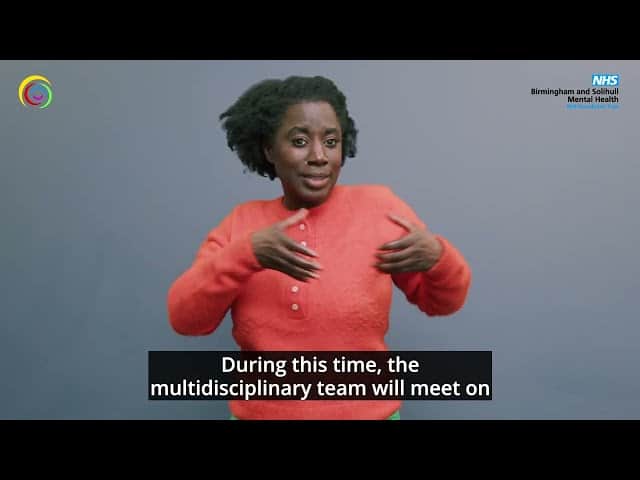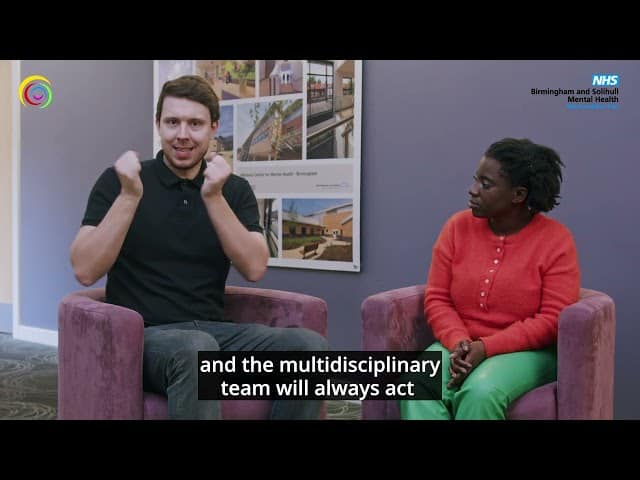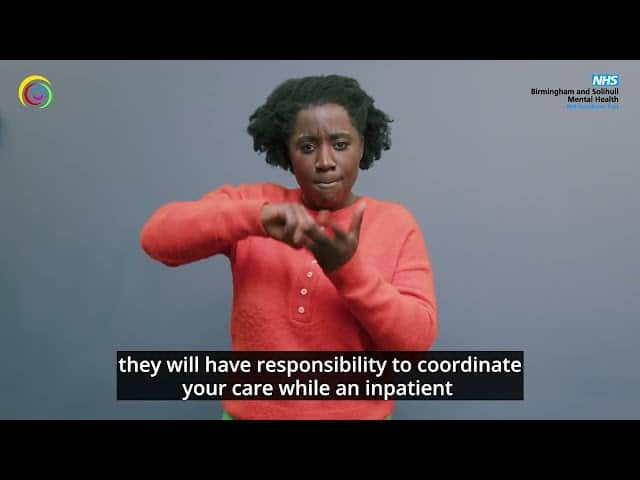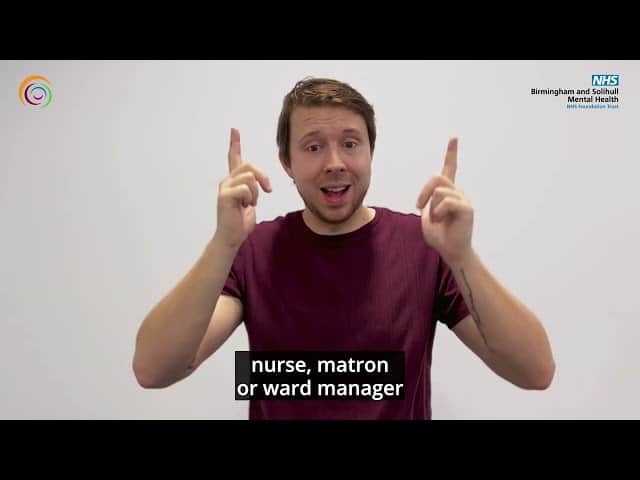What do deaf services provide
We provide a recovery-focused, culturally sensitive, linguistically accessible mental health service to deaf, hard of hearing and deafblind people aged 18 years and above.
We meet a wide range of communication and language needs and aim to provide an environment which empowers recovery and a good quality of life. The service will use our specialist cultural and linguistic expertise to inform diagnosis and treatment.
Research has shown that deaf people have a higher chance of experiencing a mental health problem throughout their lifetime than a hearing person.
As a service our aim is to meet the deaf patients’ holistic needs, as multidisciplinary professionals experienced in deaf mental health.
We also collaborate with qualified in-house interpreters experienced within a mental health setting.
We understand the deaf person as a whole and the barriers they may face in their language acquisition, education, incidental learning, and barriers in society.
We also consider the joyful experiences as a deaf person in deaf cultural events such as art, drama, humour, sports, and Specialist skills.
We use our knowledge and awareness to understand the impact of problems in language and communication as well as the presentation of mental health disorders within the Deaf population.
We also understand how families can react to having a deaf child and how this can affect the person’s mental health and wellbeing.
How we can help
The multidisciplinary team
The national deaf service has its own multidisciplinary team which provides specialised care to our service users.
Our clinical teams are comprised of a number of professionals including, and not limited to, nurses, nurse associates, healthcare assistants, psychiatrists, psychologists and occupational therapists.
Each discipline has key roles that they perform for the patients using our service. A representative from each of the above disciplines may attend a weekly multidisciplinary team meeting to review your progress or the difficulties you may have encountered. In addition to this meeting, the multidisciplinary team undertakes a weekly ward round where you are invited to discuss your care and treatment.

Our beliefs and aims for working with patients
Jasmine Suite respects service users as individuals regarding their rights and throughout your treatment staff will respect your privacy and rights. We aim to work in collaboration with you and support you to be involved with decisions in your care, treatment (therapy, medication, education) and recovery.
How we support patients
We have a specialist team of many different professionals who focus on helping each patient towards their version of recovery. The hospital provides a safe environment for care and treatment which promotes recovery in a Deaf aware environment.
We provide support with a patient first focus, while also working with outside professionals and anyone involved in the patient’s everyday life such as family, carers or close friends.
What mental health problems are treated at Jasmine Suite
This service provides mental health assessment, care and treatment for deaf, deafened, hard of hearing and deaf-blind people who may be experiencing and not limited to:
- bipolar disorder
- depression
- psychotic episodes
- schizophrenia
- personality disorder
Accessing our service
We gain our referrals mainly through GP surgeries who would then refer the patient to the community mental health team locally before referring to Deaf services.
Sometimes the social worker for the Deaf person may make a referral to the GP as an initial access point.
The local community mental health teams then allocate a care coordinator if there isn’t one in place.
We prefer to then co-work with the local team for a joint appointment. They can then gain insight into the need for a care coordinator.
This can often be an educational and informative process for the local community team involved as a non-Deaf service.
Information for service users, carers and visitors
Deaf and hearing staff work together on Jasmine suite. All staff must learn BSL, min level 2, we encourage level 3. There are always a minimum of two interpreters available from Monday to Friday, 9am to 5pm as well.
If you stay Jasmine, you are welcome to ask any of the care team about aspects of your care. We want you to have a positive experience with us. We welcome any feedback from you, in order for us to be able to evaluate your stay with us.
What does confidentiality mean?
Confidentiality means not revealing any information about you. We maintain confidentiality at all times, for all service users accessing the national deaf service. Information relating to patient care will only be shared and be disclosed with other professionals in the patient’s care. This is so that consistent, quality care can be provided, and the multidisciplinary team will always act in the best interests of the individual patient. We also always ask patient for consent before sharing information with family or friend, this is only done at patient discretion. Every patient has right to privacy.
Confidentiality and the deaf community
We understand the deaf community is small and sometimes patients can know staff, or feel worried about staff maintaining confidentiality. We all, deaf and hearing, are professional and want to reassure you – all staff follow Trust policies, a code of conduct and confidentiality.
What happens when a person is admitted to Jasmine Suite
When you first arrive at the Jasmine suite the staff will talk with you, with an interpreter if necessary, and find out about your problems. If there are any risks (danger), the multidisciplinary team will assess and decide the best treatment methods to look after you and keep you safe.
On admission you will be allocated a named nurse, they will have responsibility to coordinate your care while an inpatient and they will see you regularly in one-to-one sessions, to find out how you are doing, to assess progress and undertake therapeutic work.
Your named nurse will be the best person to approach in the first instance, if you have concerns, compliments or complaints about your care and treatment plan. However, you can approach any of the team if you have concerns. All patients are searched in line with our Search Policy by the most appropriate staff member to keep you and our environment safe.

Ward/patient review
Ward review is held every week and your named nurse will help you prepare for this. You will be able to see the consultant along with other members of the multidisciplinary team including Deaf advocacy, to discuss your care and treatment plan and members of your family and other professionals involved in your care.
Service user feedback and complaints
We are continually trying to improve the service we provide. Service users are encouraged to raise any suggestions, comments or complaints during their time with us. If you are a patient within our services, raise it with your named community psychiatric nurse or inpatient nurse, matron or ward manager, who will do their best to address any issues that are raised.
Our Trust also has a complaints procedure for anyone to utilise, please see our Customer Relations pages for more information.




